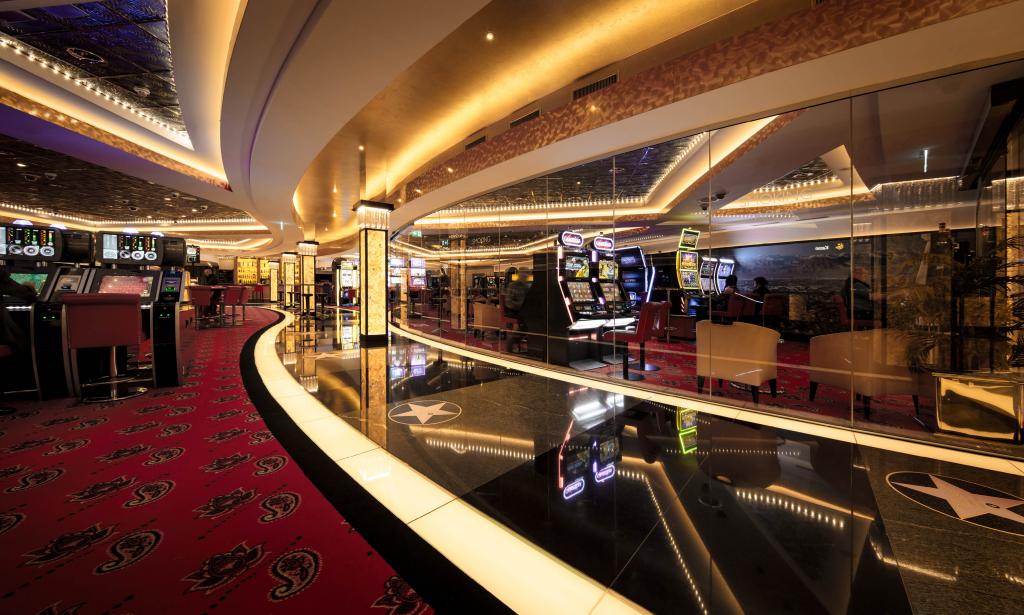Casino games have captivated players for centuries, evolving from basic recreational activities to complex experiences that integrate chance, strategy, and entertainment. From the early beginnings of gambling in cultures like Mesopotamia and Rome to the glitzy corridors of contemporary casinos, the journey of these games uncovers much about the human experience and our relationship with luck. As cultures have merged and innovation has progressed, casino games have transformed, mirroring shifts in society and advancements in gameplay.
The earliest forms of gambling likely featured elementary dice-based games and placing bets on the outcomes of sporting events. Through the years, these basic forms of gambling grew into more complex games like table games, the roulette wheel, and the myriad slot games that populate the premises of casinos today. Every generation brought its own set of rules, design elements, and sociocultural significance. In the current era, casino games maintain their evolution with the rise of internet-based platforms, enabling players from everywhere to join in a common experience, further blending the traditional with the age of technology.
Initial Roots of Gambling Activities
Gambling games have origins that reach back to historical societies, where betting was strongly embedded in social traditions and social rituals. The earliest known instances of gambling appeared in Mesopotamia around three thousand BC, involving simple dice activities made from knuckle material. These initial games laid the basis for more advanced gambling games, reflecting humans’ natural desire to pursue wealth and amusement through chance.
As societies progressed, so did their betting pursuits. In ancient China, around two thousand three hundred BC, tiles were found that resembled primitive basic versions of a lottery activity. More organized forms of betting arose in the Roman civilization, where games of luck were a popular recreation, often occurring in social gatherings. The Romans developed various betting activities, which composed die and table games, illustrating the pervasive nature of gambling across various economic classes.
With the flow of years, these primitive activities influenced the evolution of contemporary gambling activities. In the Middle Ages, card games emerged prevalent in European culture, paving the way for the organized gaming establishments we know today. The transition from casual betting to formal gaming in pubs and personal houses marked a significant change in how people engaged with activities of chance, leading to the eventual creation of gaming houses as specialized places for betting.
The Rise of Current Casino Gaming
The final 20th century marked a pivotal change in the world of gambling games, propelled by technological advancements and shifts in societal views towards betting. The emergence of personal computers and the internet transformed the way players engaged with their preferred gaming experiences. Virtual casinos emerged, allowing gamers to enjoy traditional casino classics like Texas Hold’em and 21 from the safety of their houses. This new online environment not only broadened availability to casino games but also attracted a newer crowd who found the ease and variety tempting.
As digital gaming gained momentum, so did developments in casino tech. The creation of sophisticated software and visual elements changed traditional casino games into captivating experiences. Gamblers could now interact with authentic live dealers through live streaming, bringing the atmosphere of physical casinos directly into their living rooms. This fusion of in-person play with online platforms created a novel combination that boosted the community element of playing, making it possible for individuals to connect and compete with fellow gamers around the globe.
Furthermore, the rise of mobile gaming substantially changed the gambling environment. With the ubiquitous use of mobile phones and tablets, gamblers can access their preferred gaming options everywhere, whenever. Mobile applications offer a vast array of options customized for mobile screens, catering to the dynamic daily life of modern users. This easy access has produced growing participation in gambling, fostering the exponential growth of the gambling sector. As a result, the prospects of the gaming industry continues to evolve, adapting to technological advancements and shifting consumer preferences.

How Technology Influences Casino Games
The evolution of technology has significantly transformed casino games, enhancing the overall experience for players for players around the world. With the introduction of the internet, online casinos were created, allowing players to enjoy their favorite games from the safety of their own homes. This shift not only made casino games more accessible but also expanded the variety of games offered, as online platforms could host numerous variations of traditional games without the physical constraints of physical casinos.
Mobile technology further transformed the casino gaming landscape. https://okvip.diy/ As smartphones and tablets became widespread, players can to engage in casino games anytime and anywhere. This flexibility has resulted in the development of dedicated mobile applications and optimized websites that provide seamless gaming experiences. Additionally, advancements such as live dealer games have brought the genuine feel of a casino into players’ living rooms, connecting between physical and online gaming.
Furthermore, advancements in AI and virtual reality are paving the way for the next generation of casino games. AI enhances game design and player interaction, creating customized experiences based on user behavior and preferences. Meanwhile, virtual reality provides immersive environments where players can interact in a virtual casino environment, making the gaming experience more engaging and realistic. As technology continues to evolve, the future of casino games seems bright, filled with limitless opportunities for innovation and entertainment.